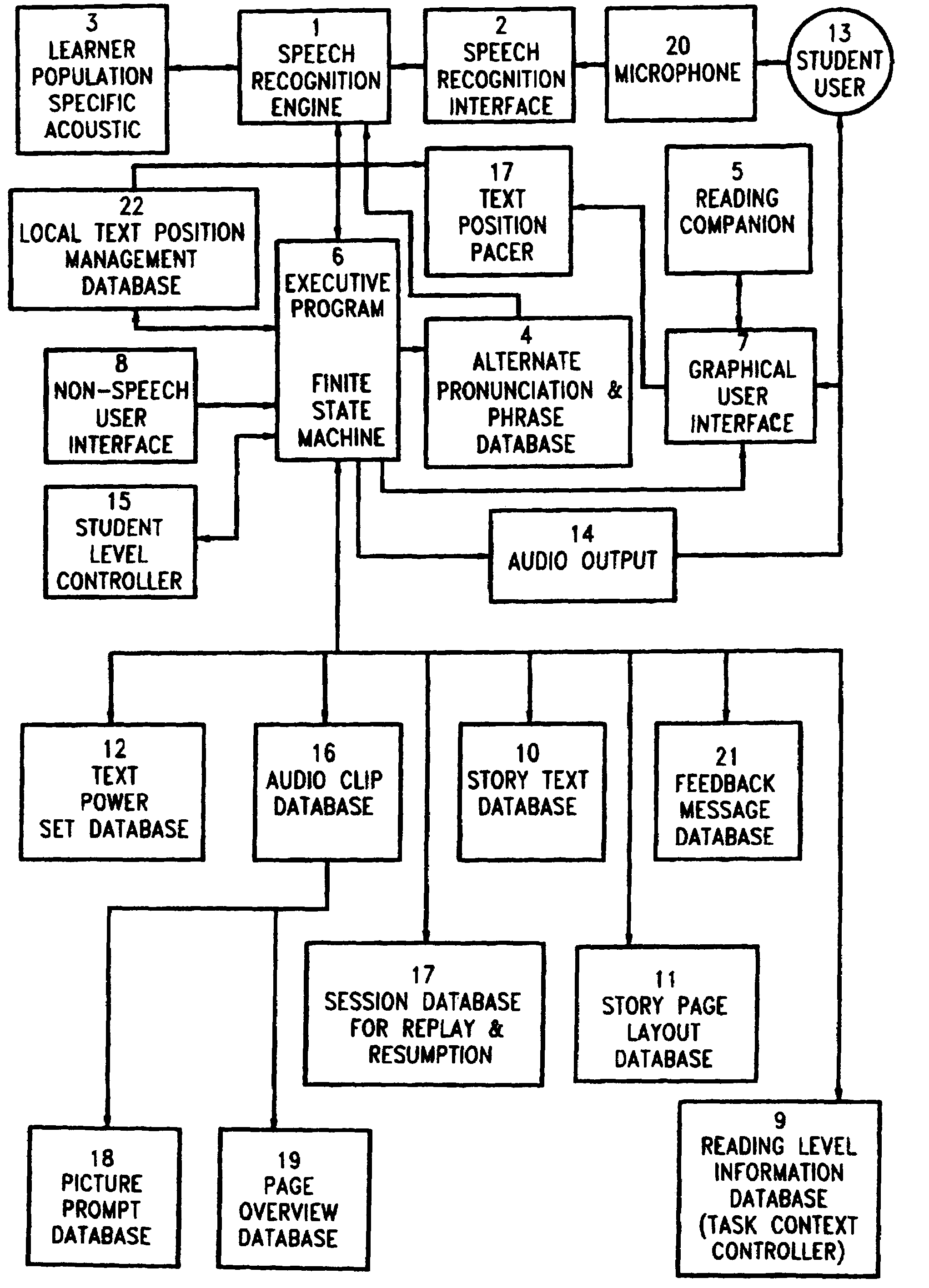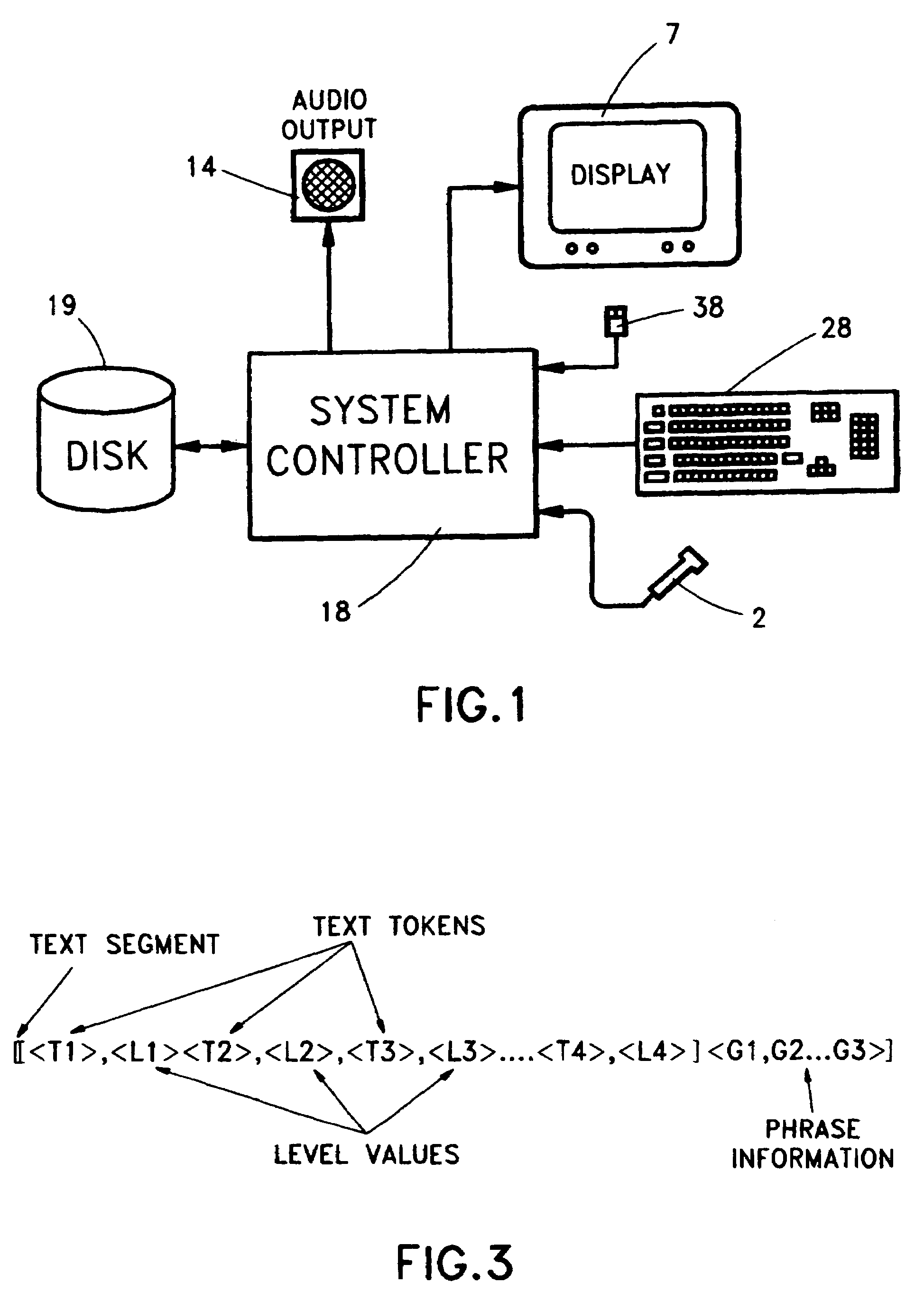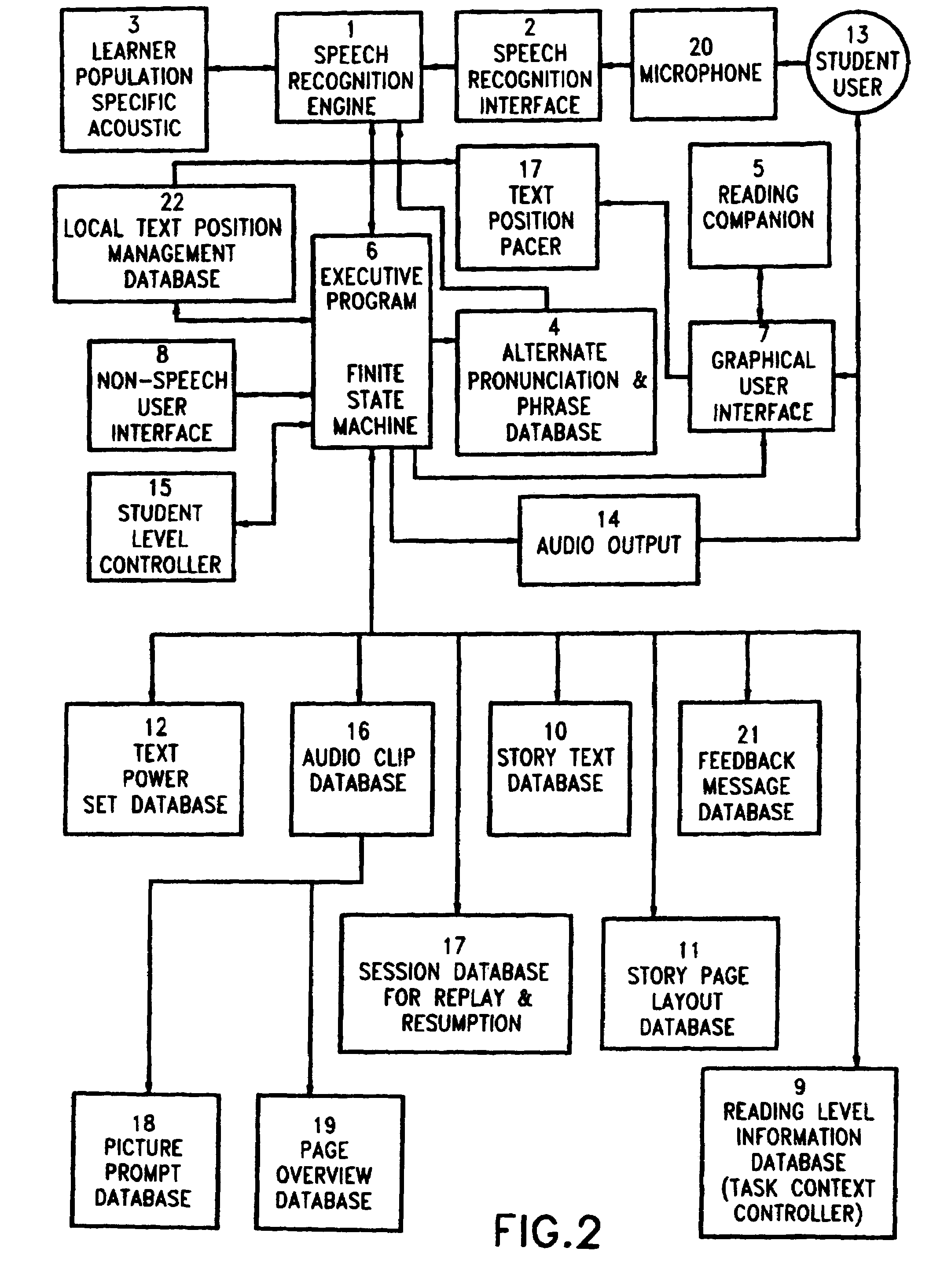System and method for interactive reading and language instruction
a reading and language instruction system and language instruction technology, applied in the field of computer-based instruction, can solve the problems of increasing complexity, unable to effectively recognize speech uttered by children, and the complexity of prior art speech recognition systems
- Summary
- Abstract
- Description
- Claims
- Application Information
AI Technical Summary
Benefits of technology
Problems solved by technology
Method used
Image
Examples
Embodiment Construction
[0019]The invention, in its most basic embodiment as illustrated in FIG. 1, comprises a system controller 118, comprising an executive program having access to information stored in one or more storage locations, illustratively depicted as disk 119. It is to be noted that internal or external storage means other than disk storage could clearly be utilized, provided that the executive program can readily access stored data and / or applications. Textual or instructional input from a student user to the system controller is provided via one or more non-speech user inputs, shown representatively as keyboard 128 or mouse 138, while audio input is provided via microphone 120. Output from the system controller for interaction with the student is provided as video output at the graphical user interface, display 107 or as audio output via speaker 114. Combination of components in stand-alone systems, or omission of one of the input or output devices, is common practice which may affect the ne...
PUM
 Login to View More
Login to View More Abstract
Description
Claims
Application Information
 Login to View More
Login to View More - R&D
- Intellectual Property
- Life Sciences
- Materials
- Tech Scout
- Unparalleled Data Quality
- Higher Quality Content
- 60% Fewer Hallucinations
Browse by: Latest US Patents, China's latest patents, Technical Efficacy Thesaurus, Application Domain, Technology Topic, Popular Technical Reports.
© 2025 PatSnap. All rights reserved.Legal|Privacy policy|Modern Slavery Act Transparency Statement|Sitemap|About US| Contact US: help@patsnap.com



